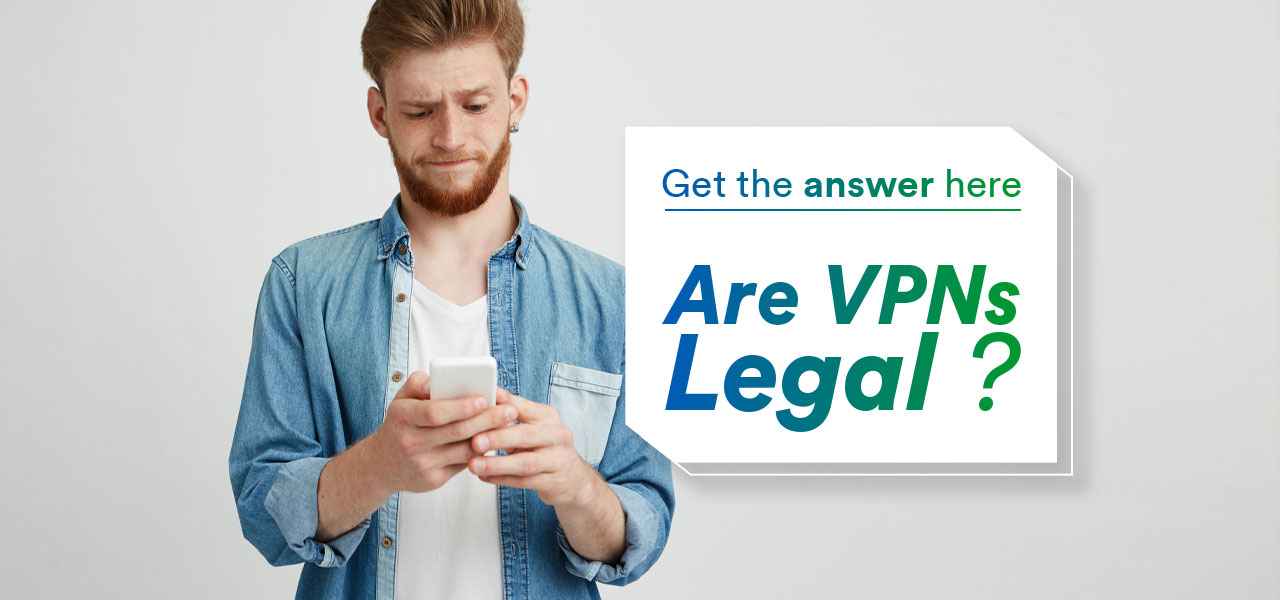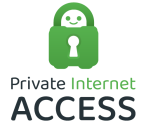
Are VPNs legal? Controversy, confusion, and concern surround a question that is raised on an all too regular basis. I am here to give the lowdown on a high profile issue.
After reviewing most services, we recon ExpressVPN is the best VPN for privacy, streaming and torrenting. For a limited time, get a huge discount and 30-day money-back guarantee.
The answer is…
Largely Yes! In most countries, it is a citizen’s legal right to privacy. This is clearly stated under the United Nations convention. However, a few countries with repressive regimes have made VPNs illegal.
Others have put restrictive measures in place in an attempt to block in-country users from accessing the internet. The question is VPN illegal to use then appears to be a positive (even though there is no law stating the fact).
We will get into the prime suspects in terms of where are VPNs illegal, but that is for later in the piece.
Let’s understand points on what are VPNs legal for, as well as a counter-question that often gives these highly effective networks a negative press: What is VPN illegal use?
Where is VPN legal use a huge benefit
VPN technology evolved to enable remote workers, employees who spent a lot of the time out of the office and those who traveled overseas for business trips to securely access corporate intranets.
This ability meant that even though these employees were out of the office they could access all relevant areas of their company network to mirror use as if they were in the office and connected to the company Local Area Network (LAN).
VPN use continues to be widely employed in this way and is an extremely valid and popular service used by countless numbers of companies throughout the world. This is VPN legal use from its origins.
Over the years this technology has developed, connection speeds have become lightning-fast (looking for the highest VPN speed?), layers of security and authentication have been added and apps introduced to ensure that setup and use of a VPN service is extremely straightforward. VPN use has also spread to the masses, i.e. you and I, and what a welcome addition it has been.
Where is VPN legal use a convenience?
The growing rise in online access contributed to increasing numbers of VPN providers. This sector has continued to blossom because individuals now understand far more clearly why security and privacy precautions must be taken to protect their online presence.
The use of a VPN is that ideal protection. It is extremely simple to sign-up, install the software and then access the internet via a VPN provider’s network. It does not matter what device(s) you are using. There are clients and VPN apps for Android, iOS, Windows, Mac, and Linux. Indeed, it is difficult to find an OS or device that does not have the compatible VPN software.
Monthly subscription costs are low, service is high. Safe surfing, securing personal data and overcoming geographical restrictions to access the content you would otherwise be unable to (think Netflix US and the UK’s BBC iPlayer) is yours.
For those into torrenting, there are certain providers that major in giving P2P and file-sharing attributes at lightning speeds and all reputable VPN providers out there offer subscribers the ability of simultaneous connections. This means you can use more than one device at a time. Device numbers generally range from 3 to 7 simultaneous devices per subscriber dependent upon the provider’s VPN policy.
Is VPN illegal if offered as a free service?
The answer of course is: No, free services are perfectly legal, but please be wary of such offers. Connection speeds and limitations on access countries as well as servers will be the result of such a service. You should also be clear that you get nothing for nothing when it comes to such offers. These companies will usually insert a contract clause that states they can use your data for their own purposes.
While this is certainly not illegal, it is certainly not what you want! Respected providers will offer a ‘VPN No Logs’ or ‘minimal logs’ policy. The keen price you pay for such subscriptions represents excellent value.
Are VPNs illegal if used for criminal activity?
The VPNs themselves are not illegal, but if you break the law while using one then you are committing a crime. You need to be clear that while VPN providers go out of their way to legally protect your identity and online movements they are certainly not there to protect criminals. It stands to reason that if heavily pressured by government authorities, they will quite rightly hand-over whatever detail they have.
If you are not breaking a countries law while online then you are doing nothing illegal!
Countries that are the exception to the rule:
Are VPNs illegal in:
- Iran
- Iraq
- North Korea
- Oman
- Syria
- Turkmenistan
- United Arab Emirates (UAE)
Officially the use of VPNs in these countries means you are breaking the law. How this is policed varies greatly, and infrastructure, as well as the ability of citizens to use internet services in such countries as North Korea and Turkmenistan, generally means that: Is VPN legal to use, irrelevant.
Iraq and Syria have had infrastructure decimated due to major conflicts and while Iranian citizens could, in principle face between 91 days and 1 year in prison for illegal internet use, something tells me that the laws are not so strictly enforced. Why? Apparently, there are around 23 million registered Iranian Facebook users!
Another tricky one. Is VPN illegal in the UAE? In 2016 the UAE authorities announced that VPN use was illegal, but there is a lack of clarity about the meaning of the law. Anyone breaking this law will be subject to a fine of up to AED 2 million (around $550,000).
There have been no sensationalist examples of this law being enforced and unconfirmed reports are that VPN use is common. Any effects are far more likely to be felt by local citizens and it would appear unlikely that the lucrative Expat community will be subject to close scrutiny. It is known that many continue to use VPN services to access media streaming services while on campus.
Is VPN illegal to use in the above countries is a question you must answer yourself and do so very carefully. It goes without saying that anyone criticizing these governments or coming to the attention of them could be in the very deep water. So, if you are in or visiting such countries, be extra cautious, be sensible
Countries where VPNs are banned
Here are 4 countries where authorities ‘ban’ the use of VPNs, but is VPN illegal to use in these countries? No, it is not. These are major countries where banning and blocking tactics are used:
- China
- Egypt
- Russia
- Vietnam
Are VPNs illegal in these countries refers to in-country providers, not to users? China and Russia are prime examples where the use of VPN technology is actively used – check out my selection of the best VPN for China. While Vietnam blocks certain international sites their tactics can be circumvented by using a VPN.
Anyone deemed to be anti-authority or against government policies in these countries will be punished heavily if caught. When it comes to Egypt, be careful. They seem to be increasingly tightening Internet laws. Again, it is citizens of these countries that will come under most scrutiny.
Beware of the situation in Turkey:
Are VPNs illegal in Turkey? The answer is: No, but you should be aware that the Turkish authorities have a policy of blocking websites it deems to have offended it as well as those which are ‘politically sensitive’.
In 2014 Turkish citizens were banned from accessing YouTube. To ensure they toed the line, the ISPs of that country employed DNS poisoning to prevent access!
So, is VPN legal to use in Turkey? Certainly not yet, but the recently endorsed regime headed by Recep Erdogan is rumored to have Internet access tightening regulations in their sight. Such moves would obviously affect citizens far more than visitors but beware that sudden changes could occur and the answer to: Are VPNs legal to use? It will become the opposite! It goes without saying that you would be very unwise to cross the authorities while in Turkey.
The best VPNs
Are VPNs illegal to use? This question is often shrouded in “grey areas” and really is dependent upon the attitude of individual administrations. I recommend extra caution if visiting any of the countries mentioned. Indeed, visiting anywhere that authoritarian law is whatever the administration wants it to be!
And if you have to use a VPN, make sure to install it before leaving.
These are the VPN we recommend, that can always help:
Summing up – Are VPNs legal globally?
It is important to note that as well as most things. The question of: Is VPN legal to use in this country or that can change very quickly. But, the current situation outside of regions and countries involved in war, along with particularly repressive nations such as North Korea and Turkmenistan where, even if it was possible the infrastructure and wealth of most citizens make internet use untenable, the question: Is VPN legal in the vast majority of countries, can be answered in the positive.
Blocks are enforced in various countries but really only China and Egypt have the technology to carry through effective actions and choosing a VPN that offers stealth server access will help get around such issues.
Thankfully, in the civilized world, you can rest assured that our question: Are VPNs legal to use? is answered with a very resounding Yes! And we recommend ExpressVPN.
Please keep an eye out for past, present and many future articles I release on all things ‘online’. Despite some negative news about a handful of countries stated above, internet freedom really should be yours!
‘Till Later!






